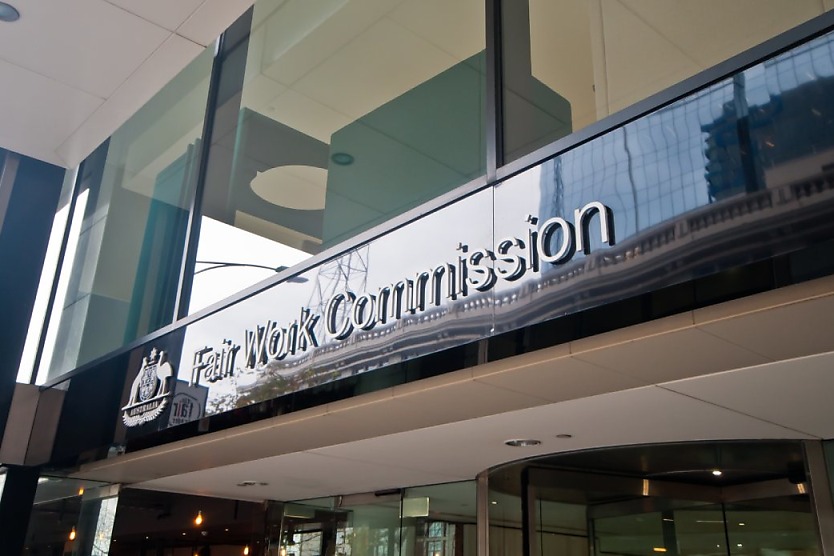
The Fair Work Commission has released its highly anticipated Annual Wage Review for 2024, which will affect approximately 2.6 million workers across the country.
Earlier this morning (Monday, 3 June), the Fair Work Commission unveiled its annual review decision, in which it resolved to increase the minimum wage by 3.75 per cent. This means hourly wages will rise to $24.10, up by $0.87.
The decision will impact around 2.6 million employees across the country, accounting for one-fifth of Australian workers.
In a live-streamed statement, FWC president Adam Hatcher said: “In determining this level of increase, a primary consideration has been the cost-of-living pressures that modern-award-reliant employees, particularly those who are low paid and live in low-income households, continue to experience notwithstanding that inflation is considerably lower than it was at the time of last year’s review.”
Modern award minimum wages remain, he outlined, in real terms, lower than they were five years ago, notwithstanding last year’s increase of 5.75 per cent, and employee households reliant on award wages are undergoing financial stress as a result.
This has militated against this review, resulting in any further reduction in real award wage rates, Hatcher explained, before going on to justify the quantum of the increase in light of looming tax cuts and increases to the superannuation guarantee contribution amount.
“At the same time, we consider that it is not appropriate at this time to increase award wages by any amount significantly above the inflation rate, principally because labour productivity is no higher than it was four years ago and productivity growth has only recently returned to positive territory,” he said.
“We have taken into account that the labour market and business profit growth overall remain strong, but the picture is less positive in some of the industry sectors which contain a large proportion of modern-award-reliant employees. We have also taken into account that modern-award-reliant employees will shortly receive the benefit of the Stage 3 tax cuts and the budget cost-of-living measures, which are projected to increase real household disposable incomes over the next 12 months. We have treated the forthcoming increase to the superannuation guarantee contribution amount as a moderating factor.”
The increase of 3.75 per cent, Hatcher went on, is “broadly in line” with forecast wage growth across the economy in 2024 and will make “only a modest contribution” to the total amount of wage growth in 2024, he suggested.
“We consider, therefore, that this increase is consistent with the forecast return of the inflation rate to below 3 per cent in 2025,” Hatcher said.
The decision and order will come into operation on 1 July, following the end of the financial year.
The annual review directly affects employees in the national system who are covered by a modern award or a transitional instrument, or not covered by either an award or an enterprise agreement.
As a part of the review, the president of the commission directed a panel to investigate and report on certain matters, including relative living standards, the “needs of the low-paid”, workforce participation, the performance and competitiveness of the national economy, and the need to achieve gender equality.
The president or the panel also set an annual wage review research program, which occurs each year. A group is created to conduct this research and also involves an economic analysis team that collects data pertaining to the decisions being made. Other members of the group are representatives nominated by the Australian Chamber of Commerce and Industry, the Australian Industry Group, the Australian Council of Social Service, the Australian Council of Trade Unions, as well as the federal government and state and territory governments.
The Albanese government has recently been pushing for minimum and award wage increases that can keep pace with current inflation rates, which are reinforcing the cost-of-living crisis that is affecting so many Australians.
The inflation rate has been sitting at 4.1 per cent over the year to December 2023.
The minimum wage is currently set at $23.23 per hour after the award minimum increased by 5.75 per cent in July last year.
The government argued that low-paid workers are disproportionately affected by inflation and that the minimum wage is an important tool to counter this. It also argued that benefits due to flow from tax cuts in July should be in addition to wage increases.
The government’s submission stated: “Despite increases in nominal wages, and the return of annual real wages growth, the real value of award wages has been eroded in recent years given the global inflationary environment.”
“This submission does not suggest that across the board, wages should automatically increase with inflation, nor that inflation should be the only consideration in determining wages.”
RELATED TERMS
The bare minimum that can be paid to a full-time worker each year is known as minimum wage. For temporary and part-time workers, this is prorated.
Jack Campbell
Jack is the editor at HR Leader.










